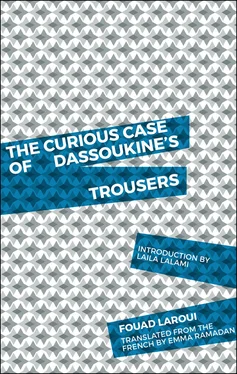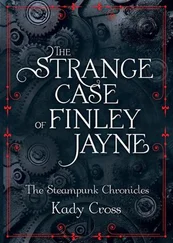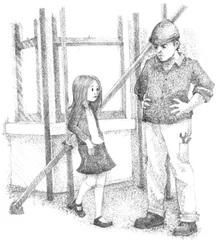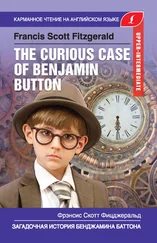He touches his side, there, on Transvaalstraat, as if feeling the blow again, several months after the incident. To the eyes of the world still intact / It feels grow and weep, unspoken, / Its sharp, underlying crack / Do not touch, it is broken.
…that night when he had enthusiastically plunged his spoon into the soup bowl, the night when her parents were visiting — hey, we have to wait for the short prayer giving thanks to God for the food on the table — wasn’t her father a pastor of the Reformed Church of the Netherlands? Hadn’t he accepted, this strict father (but not overly), bearded like Jehovah (but not overly), Bach amateur (without moderation)…
All along that horizon line toward the void, at that exact instant, perhaps in one or the other of these absolutely identical houses, a Bach cantata plays…It was here, in this country, in this city, that he discovered the Great Consolation — if he could emerge from this dislocation, start back on his route, drag himself to the living room and slide the Passion into the CD player…But what kind of passion? (“Here we go, he thinks he’s Jesus.” And again this phrase steeped in irony clearly formed in his head, boiling over. But who is speaking, after all? He turns around brusquely — but no, he’s alone in the embalmed twilight.) Continuing on. “Passion.” Wasn’t he the one suffering from the great translation that brought him to these shores? Wasn’t he persevering in this irrational disorder? Why does man distance himself from his home? Why does he make himself into a foreigner?
…that his daughter marry a foreigner?
And isn’t she a foreigner, too? Vis-à-vis the rest of the world? The vast world? The infinite spaces?
Shouldn’t he be grateful to him? Even if it was possible to read this entire story differently, and view him, the foreigner, as the loser in the affair; and paint a picture, passing from one German to another, from Marx to Nietzsche:
Didn’t he, one day in Turin, disintegrate, as I here decompose? He collapses…he passes a carriage whose coach driver is whipping the horse violently…wrings his neck and bursts into tears…Nothing here on Transvaalstraat betrays an animal presence — except for me — tiger, porcupine, bonobo — who becomes an animal again as soon as everything loses its meaning — perhaps a cat will appear — cats, the other consolation — and I would take it under my wing, the wing of the animal that I am, I would forbid anyone from approaching it…Yes, I would be rather insane to cry with an animal next to me. My fellow creature, my brother.
“This one went forth in quest of truth as a hero, and at last got for himself a small decked-up lie: his marriage he calleth it.” A decked-up lie (so sweet, so kind) that nudged him in the ribs… Hastily putting the spoon back down next to the bowl, he had clasped his hands (he who had never done so in his country, who had never prayed, nor even entered a mosque)…
…too late now: The die is cast. He wouldn’t enter anything anymore. Enter here, with your cortege of métèques, the workforce of immigrants… Listen, I am an immigrant. A good war, a good Occupation, and I could choose ignominy, or indifference, or heroism — and I would end up on a red poster, and I would scare passersby with how difficult it is to pronounce my name…
…and lowered his head — they didn’t expect him to do the short prayer (what was it called? “Doing grace?”) but at least he had given the impression of reflecting with them, so that he would be slightly of their world) — a world where everything was foreign?
He leaned his entire body against a tree whose name he probably didn’t know — but do trees have names? He closed his eyes. His shirt stuck to his body, he was bathed in a cold sweat that made him shiver. He closed his eyes and saw the unwinding of the rest of Time, without him, without the man who had abstracted himself from a world where everything had become foreign. He saw an excerpt from the next day’s paper, a few lines delivering the news about him: Tragedy on Transvaalstraat. Maati S. hung himself last night. Wife in tears, neighbors in shock (“such a quiet, courteous man, etc.”).
No. In the ferocious struggle against the world, never take the side of the world. He took out a tissue from his pocket and wiped his face. Then he picked up his book bag and slowly turned to face the day…to find himself on the exact street where he had lived for years now, with his wife Anna. I am Maati S., engineer, employee of City Hall in Utrecht, rank 11, full time, thirty-eight hours per week. I have just experienced a feeling that drowns me, regularly, at a fixed date. (Maybe it has something to do with the moon.) I call it, lacking a better name, “dislocation.” How can I explain it…The falcon remains deaf, we don’t know why, to the calls of the falconer. It turns and turns and turns in a delirious sky that exacerbates its gyrating. A thousand images of me multiply my terror. Welts, epiphanies, tongues on fire…Everything collapses, there is no more center, in the middle of a night suddenly fallen. There is no more reason. There is no more anything. Who is speaking about what? Who is speaking? Nothing. Nothing. Then, it’s incomprehensible, it’s a sort of new dawn, it’s a small note of the clarinet in the distance, a drum roll, heavy, heady, and the dislocation fades away. These few noises foreshadow a gesture that my wife will make, in a moment, a gesture so banal but containing all the importance I wouldn’t be able to give to the world. It’s curious, the world coagulates, I come up to the surface. I can even start to walk again. It’s enough to put one foot in front of the other. Let’s go! To his great surprise, his left leg obeys. It’s an exhausted automaton that walks, book bag in hand, in the direction of his house. It’s a trembling hand that rises toward the doorbell, a hesitant finger that grazes it. Sounds of footsteps…Who’s there? Is it you, Anna?
“My poor Maati, you look exhausted.”
Here he is seated on the sofa (collapsed, rather). He doesn’t know how he wound up there, he only just this moment rang the doorbell. She leans in while humming, kneels down, carefully removes the slippers martyring his feet. He closes his eyes and lets himself slide down a bit on the sofa. He experiences feelings he cannot define. Relief? Gratitude? Affection? Love? This young woman who carefully removes his slippers, humming…
This, he says to himself, stunned, is what I live for.
In a café in P*, capital of F*, a young Moroccan approaches me quite civilly (“Are you really What’s-his-name, the gazetteer?”) and vehemently assures me that I must hear his story — he seems to have only one, like most people.
My first instinct is to flee.
But let’s analyze the situation. October. Saturday. Beginning of the evening. The sky low and heavy outside weighs like a lid / and discourages strolls. So, may as well stay in the warmth, in this bar, opposite the church S* G* of P*, to hear what the young man has to say. Light years away from Café de l’Univers (so far, all that…), leagues from other locales, X (that’s his name) recounts:
“A few months ago, in order to obtain my passport to come study in France, I had to give to the appropriate authorities, in Rabat, an official copy of my birth certificate, which I had received myself from the moqaddem of the area for a shiny new ten-dirham bill. Once in my hands, I passed on the aforementioned document, without even glancing at it, to the prefecture — those men, those women, the famous appropriate authorities.”
“Not even glancing at it, you say?”
Читать дальше












